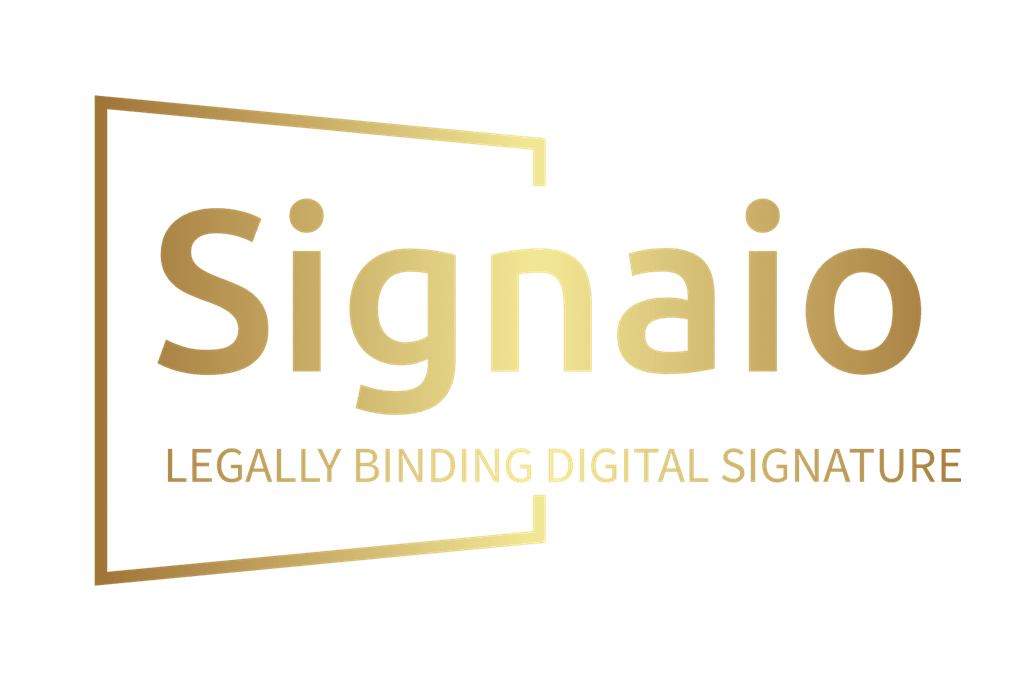
Signaio is the perfect solution for your e-business and e-document needs.
Signaio is the seamless integration of a Public Key Infrastructure (PKI) and the establishment of legal recognition for advanced electronic signatures (AES) are closely intertwined. This is because PKI serves as the fundamental framework for generating and validating AES, while legal recognition guarantees the credibility and enforceability of electronic signatures across different jurisdictions. The implementation of Public Key Infrastructure (PKI) and the application of legal recognition to Advanced Encryption Standard (AES) hold significant importance for a multitude of reasons.
1. Technical Foundation – Signaio:
Signaio provides the necessary infrastructure for generating and managing the cryptographic keys and digital certificates that are used in creating electronic signatures. In a Signaio environment, individuals or entities are issued digital certificates by a trusted Certification Authority (CA), which link their public keys to their identities. When signing a document electronically, the signer uses their private key to create a digital signature, which can be verified using their corresponding public key from the certificate.
2. Legal Recognition - AES:
Legal recognition ensures that electronic signatures, particularly advanced electronic signatures (AES), hold the same legal validity as traditional handwritten signatures. In many jurisdictions, electronic signatures are recognized as legally binding if they meet certain criteria and are generated using secure methods. AES typically require more stringent criteria than basic electronic signatures to ensure their authenticity, integrity, and non-repudiation.
3. Compliance with Regulations:
Many countries and regions have established legal frameworks to define the requirements for electronic signatures and their equivalence to traditional signatures. For example, the European Union's eIDAS Regulation and the U.S. Electronic Signatures in Global and National Commerce Act (E-SIGN Act) outline the conditions under which electronic signatures are legally valid. These regulations often require that AES meet specific technical standards and security requirements, which PKI can help fulfill.
4. Assurance and Trust:
Legal recognition of AES helps build trust in electronic transactions. When individuals and organizations know that their electronic signatures are legally valid and enforceable, they are more likely to adopt digital processes for important transactions.
5. Cross-Border Transactions:
Legal recognition of AES is particularly important for cross-border transactions where parties may be subject to different legal systems. A common set of standards for AES helps facilitate international business and trade.
6. Avoidance of Disputes:
Clear legal recognition of AES can help avoid disputes over the validity of electronic signatures in cases where signers attempt to deny their involvement or question the authenticity of a signature.
Signaio provides the necessary technical infrastructure to create advanced electronic signatures, while legal recognition ensures the validity and enforceability of those signatures in various legal jurisdictions. Both components are essential to establishing a robust and legally compliant electronic signature process. It's important to consult legal experts and consider the relevant regulations when implementing PKI and applying legal recognition to advanced electronic signatures in your specific context.
Taking you through the steps
- Introduction: "Our PKI-powered e-document solution brings simplicity and security to your e-document management process. Imagine signing contracts without the hassle of paperwork and with enhanced security."
- Access and Review: "Once your e-document is ready, upload it to our platform. All parties involved get their own digital identities, ensuring only authorized individuals have access. You can collaborate on the document online, adding comments and making revisions."
- Signing: "When everyone is on the same page, initiate the signing process. You can set up the signing order and authentication requirements to match your needs."
- Effortless Signatures: "Each party signs electronically using their private key. This creates a unique digital signature tied to the document. It's like a digital fingerprint that only you can produce."
- Audit Trail: "As you sign, a digital certificate is generated, capturing timestamps and authentication details. This creates an unalterable record of the signing process, making it tamper-proof."
- Distribution and Verification: "Once all signatures are in place, the digitally signed contract can be distributed to all parties. You and others can verify its authenticity by using the public key associated with the signer's certificate."
- Benefits: "Our Signaio for e-document not only speeds up the process but also ensures legal validity, security, and a paperless approach. It's a modern way to manage contracts that's recognized globally."
You can make it easier for your clients to grasp and use this efficient and safe solution by presenting the procedure in simple words and emphasizing the benefits of utilizing Signaio for e-contracts.



